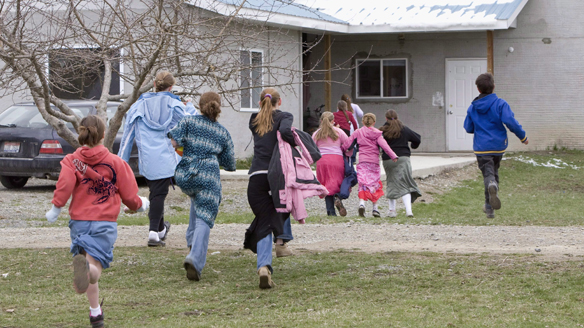Progressive groups are lined up on either side of the ongoing court hearing in B.C. about the constitutionality of Canada’s anti-polygamy law. That is not surprising, as the issues are complex and the best outcome is not at all obvious.
What is criminalized
The crime of polygamy may invoke the image of coerced marriages of multiple adolescent girls to older male church members in the town of Bountiful. However, Code section 293 criminalizes a far wider range of domestic arrangements.
In Canada, it is a crime for any three or more people, of whatever gender, to agree to enter into any kind of “conjugal union” whether or not this arrangement includes a sexual relationship. Or even to celebrate or assist anyone entering into such an agreement.
So arguably, the former television sit-com Three’s Company depicted the commission of a criminal offence, especially if (as many viewers may have imagined) more was going on among the three characters when the cameras were switched off.
Three women, or three men, or any combination of any number greater than two, forming a marriage-like relationship are guilty of an indictable offence and can face up to five years in jail.
Focus on harm
Groups who support the constitutionality of this section of the Criminal Code tend not to focus on the status of multiple-party relationships so much as the incidence of harm to women and children in some forms of polygamy (like what prevails in Bountiful, B.C.). As repugnant as the treatment of young girls in that religious cult may be, the reach of section 293 extends far beyond that kind of situation.
Although a large proportion of abuse and assault against women and children occurs within heterosexual monogamous family structures, nobody has suggested that those relationships should also be criminalized.
If the problem which needs criminalization is not the family structure per se, but rather such abuses as coerced marriages and abuse of minors, those are the behaviours which the Criminal Code should address. And it does, without section 293.
Non-traditional family relationships
Whatever your views about the practice of menage à trois, it should not be a crime to enter into a non-traditional domestic relationship. The arguments supporting maintaining the polygamy section of the Code sometimes resonate uncomfortably with those against same-sex marriage and adoption. The whole point of having a Charter of Rights is to ensure that restrictions on our freedoms are defensible on a rigorous, rational and principled basis.
The line between what is permitted and what is prohibited must be drawn with great care so that (as with the crime of polygamy) we do not trample on other rights as collateral damage in our efforts to prevent social harm.
So if the problem is abusive or coercive polygamous relationships, criminalize abuse and coercion (which we already have done).



